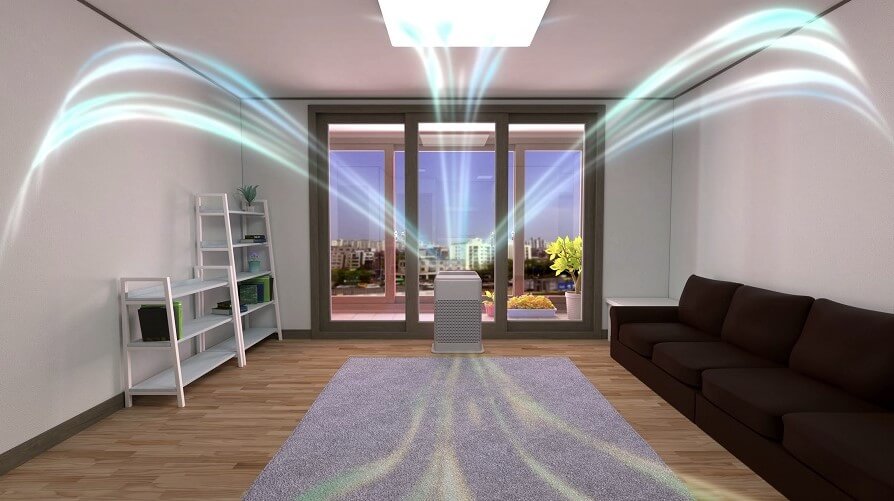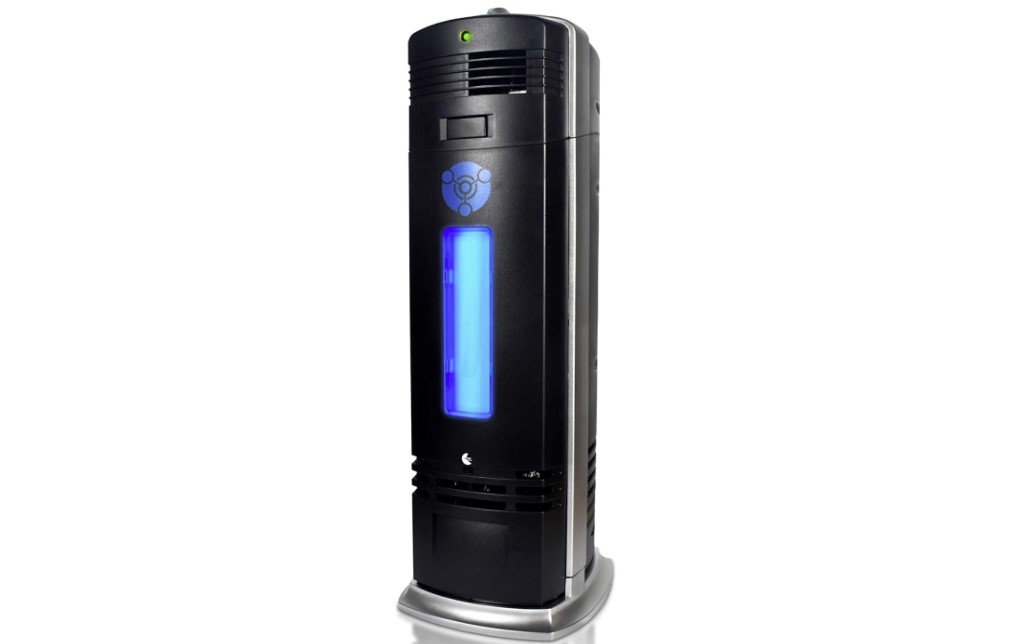If you want to purchase an air purifier, you’ve probably come across several options, such as air ionizers. Unlike filtered air purifiers that trap contaminants, these devices claim to help clean the air by ionizing the pollutants.
As such, there are some issues about their use, such as whether they are effective. And the simple answer to this is yes; they can clean the air. By ionizing the air, they disrupt the airborne particle and help eliminate contaminants.

That being said, there is an issue to consider regarding their effectiveness compared to other air purification devices.
This article will look at how air ionizers work, how effective they are, and other issues, such as safety concerns.
Air purifiers vs ionizers – are they different?
Before proceeding, it is important to understand what air ionizers are. Most people classify ionizers in a different category than air purifiers. However, this is not the case.
Ionizers, also called ionizing air purifiers, ionic air purifiers, or ionic generators, are a type of air purifier. They include all devices that use ionization to remove pollutants from the air.
Therefore, their mechanism is the only difference between ionizers and other air purifiers. For example, HEPA filter air purifiers that use a HEPA filter to trap pollutants. But, at the end of the day, both purifiers help clean the air you breathe.
How do air ionizers work?

Air ionizers work through a high voltage that releases negatively charged ions into the air.
When the negative ions come across other molecules and particles in the air with an opposite charge, they stick to them. As a result, the now heavier particles fall out of the air and attach to nearby surfaces.
Aside from this, the negative ions can charge the particles in the air, causing them to be attracted to positively charged surfaces. For example, curtains, walls, carpets, table surfaces, and other positively charged surfaces – due to electrostatic charges.
Most ionizers release the charged ions into the air. However, some draw the air in, charge it, remove contaminants, and release it back. These are called electrostatic precipitators.
Electrostatic precipitators will usually come with a plate where the charged particles are collected. Some might even feature HEPA and fabric filters, increasing their effectiveness.
Are air ionizers effective?
Do air ionizers really work? Can they get rid of airborne pollutants? Can you use an ionizer for odor removal? Ionizers can be an effective air purification device.
The charged ions they release into the air can bring down pollutants such as dust, pollen, mold spores, cigarette smoke, and pet dander.
These can then be vacuumed (if they fall on the floor) or trapped by a filter (if using an ionizer with a filter).
However, ionic air purifiers do come with some limitations:
- Ionizers that release ions into the air can have a limited range. However, this can be easily improved by using an ionizer with a fan to suck in the air. A model with both a fan and filter can increase the effectiveness significantly
- Most ionizers will only remove a limited amount of odors such as cigarette smoke – and this is by removing the particles in the smoke. When it comes to other odors, ionizers are not as effective.
- Without a filter or plate to trap the pollutants, they end up sticking to various surfaces in your home. Therefore, you have the added task of cleaning your home. On top of that, the particles, if not cleaned soon enough can become re-suspended in the air.
Is it safe to breathe ionized air?

Is it safe to be in a room with an ionizer? With ionizers releasing charged ions into the air, there is a safety concern issue at hand, and with good reason.
One of the main dangers of ionizer air purifiers is creating ozone gas, a by-product of the electrostatic charge process.
The gas is toxic and it can lead to lung damage in high amounts. And even in small amounts, ozone can cause several health issues such as nasal and throat irritation, chest pains, and even trigger asthma.
In conclusion
Ionizer air purifiers are a type of air purifier that uses ionization to clean the air. On their own, they are considered to be less effective than filtered air purifiers, especially when it comes to odors. They also come with possible dangers of ozone production.
However, ionizers can be equipped with fans and even filters, thus improving their air purification effectiveness. With careful selection, you might also find a good ionizer with minimal ozone generation.
You should still be cautious, especially if you suffer from allergies such as asthma.
You may also like
